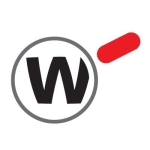Many traditional on-premise customers transitioning to the cloud often prioritize solutions like CloudGuard, especially when dealing with scale sets and clusters. These customers are accustomed to constructing their own network infrastructure and are drawn to CloudGuard for its compatibility with these setups. This primary use case highlights the appeal of CloudGuard for organizations seeking to maintain control over their network security while migrating to cloud environments.
The unified security management significantly impacts security operations and management positively. It's undeniably beneficial, offering streamlined processes and enhanced control. With the rise of infrastructure as code and tools like Terraform, there's a shift towards a separate manager pushing policies to gateways, which can introduce complexity. However, advancements like dynamic resets, enabled directly on the gateway without manager intervention, represent a significant leap forward, simplifying operations and propelling the company towards more efficient security management.
The most significant benefit for our customers lies in the familiarity and comfort of transitioning from on-premise Check Point solutions to CloudGuard's unified management system. This seamless continuity offers reassurance and confidence in navigating the cloud security landscape, making the transition smoother and more intuitive for them.
When compared to other migration solutions in terms of identity-centric security threats, Check Point stands out for its efficacy rates, particularly evident in its threat cloud and AI capabilities. The integration of various security features, along with the collaborative aspect where information from all Check Point Gateways feeds into a collective pool, underscores the robust security aspect of the platform. This is where Check Point consistently sets itself apart in the security landscape.
We maintain a high level of confidence in our security posture, provided everything is configured correctly. Check Point offers additional solutions to address gaps beyond the firewall's capabilities, especially in scenarios where threats may circumvent it or exploit other entry points. Network security alone may not suffice, but Check Point's supplementary solutions, such as Network Calabrio, complement our defenses effectively, serving as a solid foundation for our overall security strategy.
Our clients appreciate the familiar look and feel of Check Point's interface, which maintains the security standards they've come to trust. While there are numerous reports comparing efficacy rates of cloud-native solutions, they often fall short in comparison to third-party vendors like Check Point.
The auto-scaling feature is undoubtedly one of the most valuable aspects of having Check Point security in the cloud. It provides excellent protection by dynamically adjusting resources based on demand. Additionally, the centralized reporting and management, accessible through a single pane of glass, offer consistency and efficiency across multi-cloud environments. This unified approach ensures seamless security management regardless of the cloud platform, making it a highly advantageous feature of Check Point's cloud security solutions.
Check Point's primary competitor, Palo Alto Networks, offers a SaaS firewall solution that can be deployed in both traditional virtual networks (VNETs) and virtual wide area networks (VWANs). This firewall solution features auto-scaling and consumption-based pricing, allowing users to scale according to their needs seamlessly. While Check Point does offer some VWAN offerings, they appear to be more static and less tailored to cloud-native environments compared to Palo Alto's dynamic and flexible approach.
I have been working with it for approximately five years.
In terms of stability, I've never encountered any issues where a gateway went down or experienced faults. My experience across various environments has been consistently positive, without any instances of gateway crashes or failures for any specific reasons.
The scalability aspect functions seamlessly, although there's a significant process involved, particularly with the CME and management components recognizing new gateways and pushing necessary files. Despite the complexity, the CME serves as an effective tool for deploying scripts and managing tasks. However, the requirement for management to push configurations to the firewall adds an additional layer of intricacy beyond simply pushing to the gateway.
The technical support provided by Check Point is commendable. Once a case reaches the right hands, resolutions are often swift. However, there can be challenges in initially getting the case directed to the appropriate personnel, which is not uncommon for organizations of our size. I would rate it seven out of ten.
I've implemented various deployments, with one of the most extensive being a multi-tier architecture utilizing different scale sets for handling ingress, egress, and east-west traffic internally. This particular deployment spanned across two regions, with a total of twelve instances distributed among the scale sets, each serving a distinct function. Essentially, it aimed to replicate a traditional data center environment in the cloud, catering to the specific needs of the organization.
Lately, I've been engaged in numerous discussions surrounding cloud-native firewall solutions like AWS Firewall or Azure Firewall, as well as offerings such as Palo Alto's SaaS firewall and CloudGuard NGFW.
CloudGuard compares favorably, offering a familiar and user-friendly experience akin to Check Point's traditional products. The trend towards cloud-native solutions is evident, particularly among non-security-focused individuals. The flexibility to assist in migrating customers who are embracing cloud-native approaches, integrating seamlessly with platforms like Azure WolfStack and AWS real stack, is a significant advantage. This ease of migration is a notable strength of competitors like Palo Alto.
It functions well, especially the auto-scaling feature, despite the complexity involved, particularly with integrating Azure load balancers. Consolidating these components would be beneficial, but without a SaaS offering, reliance on Azure's resources or cloud-native resources remains a factor. Overall, I would rate it eight out of ten.



















